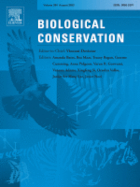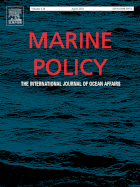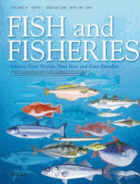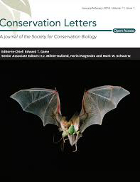Darcy Bradley

Senior Scientist
Marine
[email protected]
Darcy is a Senior Ocean Scientist with the Nature Conservancy. She works broadly across the Oceans Program, leading efforts to advance solutions to plastic pollution in the state, address unsustainable fisheries bycatch across the Pacific, and increase the pace and scale of ocean recovery across a broad range of tropical and temperate habitats. Much of Darcy’s work focuses on the use of remote sensing and near real-time data analytics to drive conservation opportunities for marine habitat and wildlife protection and recovery.
Prior to joining the Conservancy, Darcy was on the research faculty at the University of California, Santa Barbara (UCSB), where she co-led the Ocean Program at the Environmental Markets Lab, an interdisciplinary team of scientists working to identify the power, limitations, and design of market-based approaches to tackle the world's most pressing environmental problems. She holds a B.A. in Philosophy from Princeton University and a Ph.D. Environmental Science and Management from UCSB, where she is now an Adjunct Professor.
What Darcy is working on now:
Darcy is currently undertaking a variety of baseline assessments of plastic use and end of life management in California using remote sensing and machine learning.
Select products
2023 | Marine | Science | Publications & Reports
Static management presents a simple solution to a dynamic fishery and conservation challenge
Christopher M. Free, Lyall F. Bellquist, Karin A. Forney, Jenn Humberstone, Kate Kauer, Qui Lee, Owen R. Liu, Jameal F. Samhouri, Jono R. Wilson, Darcy Bradley
Dynamic ocean management frameworks can be a useful approach to fisheries management under climate change. In the oceans, marine heatwaves are increasingly common symptoms of climate change that can…2021 | Marine | Planning | Science | Publications & Reports
Beyond Protection: Fisheries Co-Benefits of No-Take Marine Reserves
Jono R Wilson, Darcy Bradley, Kristina Phipps, Mary G Gleason
Overfishing threatens the health and resilience of the ocean. In response, the global conservation community has set ambitious targets for protecting biodiversity inside no-take marine reserves. Yet…2021 | Marine | Planning | Science | Publications & Reports
Opportunities for Fishery Partnerships to Advance Climate-Ready Fisheries Science and Management
Serena Lomonico, Mary G Gleason, Jono R Wilson, Darcy Bradley, Kate Kauer, Richard J Bell, Thomas Dempsey
Climate change poses unprecedented challenges to the sustainable management of wild capture fisheries. Management systems that improve the flow of information so that actionable steps can be taken are…2019 | Marine | Technology | Science | Publications & Reports
Opportunities to improve fisheries management through innovative technology and advanced data systems
Darcy Bradley, Matt Merrifield, Karly M. Miller, Serena Lomonico, Jono R. Wilson, Mary G. Gleason
A lack of fishery data leads to uncertainty about stock status, which may compromise and threaten the economic and food security of the users dependent upon that stock and increase the…2018 | Marine | Technology | Science | Publications & Reports
Adaptive comanagement to achieve climate‐ready fisheries
Jono R. Wilson, Serena Lomonico, Darcy Bradley, Leila Sievanen, Tom Dempsey, Michael Bell, Skyli McAfee, Christopher Costello, Cody Szuwalski, Huff McGonigal, Sean Fitzgerald, Mary Gleason
Climate change is amplifying threats to ocean ecosystems and marine fisheries worldwide. In order to respond appropriately in the face of these ocean changes, commercial and recreational…


